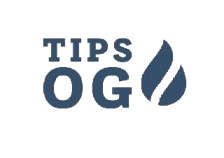
Lung cancer treatment demands precision, innovation, and exceptional expertise. In 2025, several world-renowned oncologists have risen to the top, changing the landscape of lung cancer care through research, clinical excellence, and personalized treatment approaches. Here, we present a detailed overview of the best lung cancer oncologists in the world, whose contributions have revolutionized outcomes for countless patients.
Dr. Roy Herbst – Yale Cancer Center, USA
Dr. Roy Herbst stands as a pioneer in the field of lung cancer immunotherapy. As Chief of Medical Oncology at Yale Cancer Center, Dr. Herbst’s research focuses on developing novel targeted therapies. His groundbreaking work with checkpoint inhibitors has dramatically improved survival rates for patients with advanced lung cancer. Dr. Herbst’s commitment to translational research bridges the gap between laboratory discoveries and clinical applications, offering renewed hope for patients worldwide.
Dr. Solange Peters – Lausanne University Hospital, Switzerland
Dr. Solange Peters is recognized globally for her expertise in thoracic oncology. As the Head of Medical Oncology at Lausanne University Hospital, Dr. Peters has led multiple international clinical trials exploring novel immunotherapy combinations for lung cancer. Her leadership at the European Society for Medical Oncology (ESMO) has also shaped global standards of lung cancer care. Dr. Peters’ focus on personalized medicine ensures each patient receives a therapy plan tailored to their specific tumor genetics.
Dr. Alice T. Shaw – Massachusetts General Hospital, USA
Dr. Alice T. Shaw has earned global acclaim for her contributions to targeted therapies for non-small cell lung cancer (NSCLC). As Director of Thoracic Oncology at Massachusetts General Hospital, Dr. Shaw has pioneered research on ALK, ROS1, and EGFR mutations, leading to the approval of multiple targeted drugs. Her dedication to precision oncology allows patients with rare genetic mutations to receive life-saving treatments previously unavailable.
Dr. Tony Mok – Chinese University of Hong Kong, Hong Kong
Dr. Tony Mok is a leading authority on lung cancer epidemiology and treatment in Asia. His groundbreaking research has significantly influenced the use of EGFR inhibitors for patients with EGFR-mutant NSCLC. Dr. Mok’s work extends beyond clinical practice into public health initiatives aimed at early lung cancer detection and prevention across Asia. His commitment to advancing lung cancer treatment has saved thousands of lives worldwide.
Dr. Paul Bunn Jr. – University of Colorado Cancer Center, USA
Dr. Paul Bunn Jr. is a legend in thoracic oncology. With decades of experience, Dr. Bunn’s research has shaped modern standards for lung cancer chemotherapy and targeted therapy. As the founding director of the University of Colorado Cancer Center, his mentorship has also helped develop the next generation of lung cancer specialists. Dr. Bunn’s contributions continue to impact global treatment protocols today.
Dr. Lecia Sequist – Massachusetts General Hospital, USA
Dr. Lecia Sequist specializes in precision medicine for lung cancer. As a physician-scientist at Massachusetts General Hospital, her research on liquid biopsies has revolutionized early detection and monitoring of lung cancer progression. Dr. Sequist’s clinical expertise in treating patients with driver mutations ensures personalized and highly effective treatment strategies.
Dr. Ramaswamy Govindan – Washington University School of Medicine, USA
Dr. Ramaswamy Govindan is renowned for his research in genomics and immunotherapy for lung cancer. His work at Washington University focuses on sequencing lung cancer genomes to identify actionable mutations. Dr. Govindan’s leadership in numerous national clinical trials has helped bring innovative treatments from the laboratory to the clinic faster than ever before.
Dr. Heather Wakelee – Stanford Cancer Institute, USA
Dr. Heather Wakelee serves as the Chief of Oncology at Stanford Cancer Institute. Her specialization in thoracic oncology and her leadership role in the International Association for the Study of Lung Cancer (IASLC) underline her influence in the field. Dr. Wakelee’s dedication to developing novel adjuvant therapies for early-stage lung cancer continues to improve survival rates globally.
Dr. Yasushi Goto – National Cancer Center Hospital, Japan
Dr. Yasushi Goto is one of Asia’s leading lung cancer specialists. At the National Cancer Center Hospital in Tokyo, Dr. Goto’s focus on precision therapies and clinical trials has helped advance treatment standards in Japan and globally. His leadership in implementing comprehensive genomic profiling for lung cancer has expanded personalized treatment options for countless patients.
Dr. Marina Garassino – University of Chicago Medicine, USA
Dr. Marina Garassino is an internationally recognized expert in thoracic malignancies. Her leadership in clinical trials involving immunotherapies and targeted therapies has redefined lung cancer treatment. Dr. Garassino’s commitment to promoting equity in access to lung cancer therapies ensures that patients worldwide benefit from cutting-edge treatments, regardless of geography.
Qualities That Define the Best Lung Cancer Oncologists
Several key traits distinguish these top lung cancer specialists:
- Expertise in Precision Medicine: Mastery of targeted therapies and immunotherapies tailored to individual tumor profiles.
- Leadership in Research: Active involvement in clinical trials and groundbreaking studies.
- Commitment to Innovation: Adoption of cutting-edge technologies like liquid biopsies and genetic sequencing.
- Compassionate Care: An emphasis on patient-centered approaches that consider emotional and psychological needs.
- Global Influence: Contribution to international guidelines and policy development for lung cancer treatment.
Choosing the Right Oncologist for Lung Cancer Care
Selecting the right oncologist is critical to achieving the best possible outcomes in lung cancer treatment. Patients should look for specialists with extensive experience in the latest therapies, active participation in clinical trials, and a strong commitment to personalized care.
Additionally, international patients must consider logistical support for travel, language barriers, and access to comprehensive care programs. Choosing one of these leading oncologists ensures access to the most advanced treatments and the best chance at survival and recovery.
